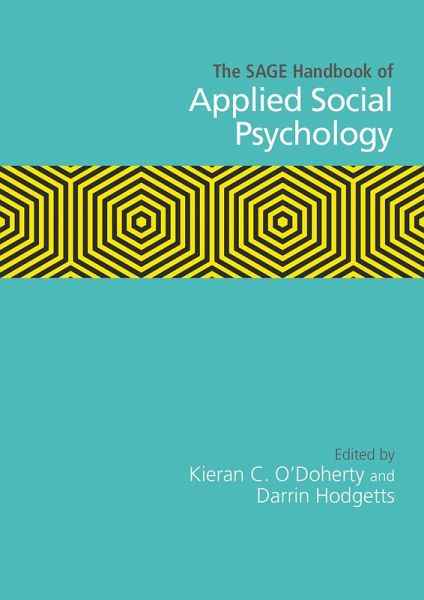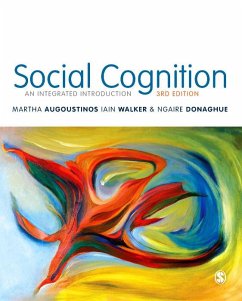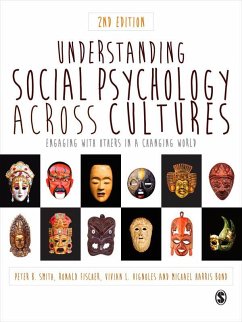
The SAGE Handbook of Applied Social Psychology (eBook, ePUB)
Versandkostenfrei!
Sofort per Download lieferbar
90,95 €
inkl. MwSt.
Weitere Ausgaben:

PAYBACK Punkte
45 °P sammeln!
In the present epoch of global change, movement, interconnection and the intensification of social issues within and across many societies, applied social psychology is more relevant than ever. The SAGE Handbook of Applied Social Psychology offers an overview of the field and the disparate and evolving approaches. Through an international team of contributors, the handbook brings prominent research literature together and organises it around ten key areas: Part 01: Culture, race, indigeneity Part 02: Gender & Sexuality Part 03: Politics Part 04: Health and mental health Part 05: Work Part 06: ...
In the present epoch of global change, movement, interconnection and the intensification of social issues within and across many societies, applied social psychology is more relevant than ever. The SAGE Handbook of Applied Social Psychology offers an overview of the field and the disparate and evolving approaches. Through an international team of contributors, the handbook brings prominent research literature together and organises it around ten key areas:
Part 01: Culture, race, indigeneity
Part 02: Gender & Sexuality
Part 03: Politics
Part 04: Health and mental health
Part 05: Work
Part 06: Ageing
Part 07: Communication
Part 08: Education
Part 09: Environment
Part 10: Criminal Justice, Law, & Crime
This handbook is a uniting and invigorating resource for the field of Applied Social Psychology.
Part 01: Culture, race, indigeneity
Part 02: Gender & Sexuality
Part 03: Politics
Part 04: Health and mental health
Part 05: Work
Part 06: Ageing
Part 07: Communication
Part 08: Education
Part 09: Environment
Part 10: Criminal Justice, Law, & Crime
This handbook is a uniting and invigorating resource for the field of Applied Social Psychology.
Dieser Download kann aus rechtlichen Gründen nur mit Rechnungsadresse in A, D ausgeliefert werden.













